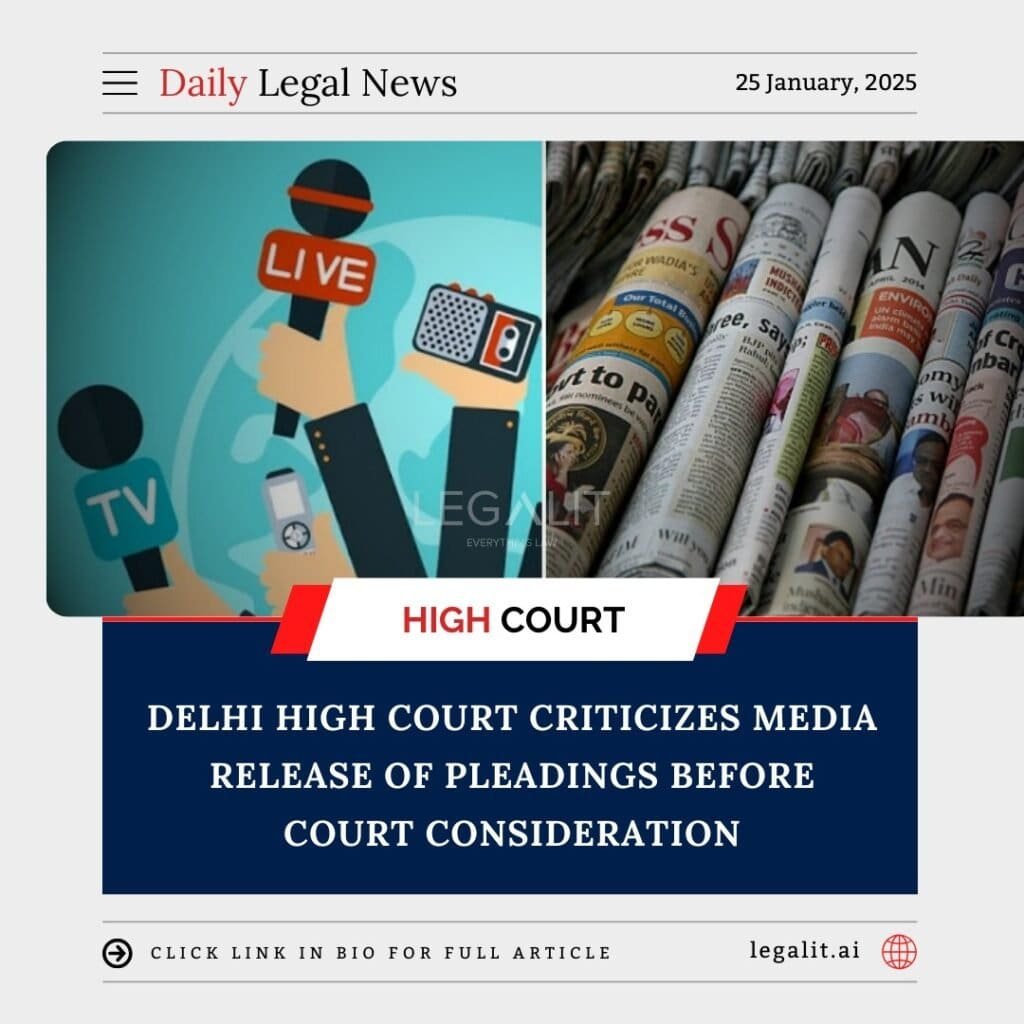
Background
The Delhi High Court took a strong stance against the practice of releasing pleadings to the media before they are reviewed by the courts. The observation came during the hearing of a case where the media had reported details of the pleadings even before the court had the opportunity to evaluate them. The court deemed this practice as detrimental to the judicial process and public perception of ongoing legal matters.
The issue of premature disclosure raises concerns about the potential influence on public opinion and the integrity of the judicial process.
Court’s Rationale
- Preserving Judicial Sanctity:
- The court emphasized that pleadings are part of the judicial process and should first be examined by the court before being made public.
- Premature media exposure can misrepresent or distort the matter, creating unnecessary bias or pressure.
- Avoiding Media Trials:
- The bench cautioned against media trials, where public discourse surrounding a case could overshadow the legal process.
- It stressed that cases must be decided based on law and evidence, not public opinion shaped by selective disclosures.
- Protecting Privacy and Confidentiality:
- Certain pleadings may contain sensitive or confidential information. Early dissemination could violate the rights of the parties involved.
- The court noted the importance of balancing the right to free speech with the right to a fair trial.
Implications of the Judgment
- Judicial Process Integrity:
- The observation underscores the need to safeguard the judicial process from external influences, ensuring impartiality and fairness.
- Responsible Media Practices:
- Media outlets are reminded to exercise caution and avoid reporting on pleadings until they are considered by the courts.
- This reinforces the importance of ethical journalism in legal reporting.
- Guidance for Legal Professionals:
- Lawyers and litigants must refrain from sharing court documents with the media before judicial scrutiny to maintain procedural propriety.
Conclusion
The Delhi High Court’s remarks highlight the importance of maintaining the sanctity of the judicial process and ensuring that court proceedings remain free from undue public influence. By discouraging the premature release of pleadings to the media, the court seeks to uphold the principles of fairness, impartiality, and justice. This serves as a reminder for all stakeholders, including the media, legal professionals, and litigants, to act responsibly in legal matters.